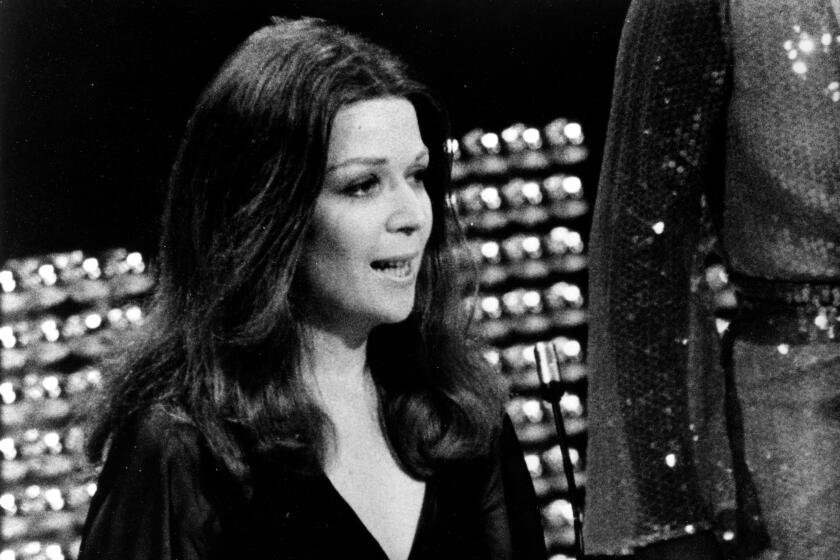E-book settlement has publishing world in turmoil
Publishing insiders worry that a decisive court ruling benefiting retailer Amazon.com Inc. will undermine an industry already struggling with the transition to e-books.
A federal court Thursday approved a settlement between the Justice Department and three of the country’s largest publishers, who were accused of colluding to fix prices for e-books. Hachette Book Group, HarperCollins Publishers and Simon & Schuster were alleged to have conspired with Apple Inc. to control the price of e-books sold online as part of a larger effort to end Amazon’s online dominance.
The two elements of wrongdoing alleged in the case — publishing competitors conspiring to limit competition in the e-book market, and fixing the retail price — are a sign of an industry grappling with disruptive change.
“Here is an example of what I would call a desperate last stand by publishers to protect themselves against a paradigm shift in publishing — and they failed,” said Jonathan Kirsch, a Los Angeles-based author and publishing attorney.
“By putting the legal approval on this settlement, the district court has pushed us over a certain kind of cliff. In terms of the real-life experiences of publishers, authors and readers, this will represent a fundamental change in how books are published and sold,” Kirsch said.
The decision has thrown the publishing world into turmoil. The Authors Guild, a 100-year-old organization representing writers, issued a statement warning that the ruling would turn the clock back to 2010, when Amazon sold 90% of all e-books. The retailer’s share dropped to 60% after Apple’s introduction of the iPad and iBookstore in 2010 and Barnes & Noble’s unveiling of the Nook e-reader.
The judge’s decision “essentially handed Amazon a controlling share of the market,” said literary agent Gary Morris of the David Black Agency, which handles such diverse authors as Mitch Albom and Barantunde Thurston. “I wish the beneficiary was not a rapacious monopolist.”
Morris, who has been in the business for 16 years, predicts that the decision will initially shrink publishers’ revenue opportunities, forcing them to make increasingly conservative publishing deals. Think summer blockbusters over indie films and celebrity titles over new voices.
“The publishers’ great fear is that by solidifying Amazon’s indispensability as a retailer, they’ll drop wholesale prices to a level that’s unsustainable for the publishing business,” Morris said.
Independent bookstore owners like John Evans, co-owner of Diesel, worry about the effect this decision could have on brick-and-mortar bookstores, as well as the entire publishing ecosystem — which cultivates authors, publishes their works and brings the books to a broad audience. Amazon has recently devoted heavy resources to its own publishing operation.
“Amazon might want to crash the industry so they can dominate from the rubble,” Evans said.
These reactions echoed many of the 868 comments filed with the court — 90% of which spoke against the settlement.
“Some comments were filled with extreme statements, blaming every evil to befall publishing on Amazon’s $9.99 price for newly released and bestselling e-books,” Judge Denise Cote noted in her ruling.
Kirsch said Cote’s ruling acknowledged that some harm might befall bookstores and others in the industry with the elimination of “anticompetitive, collusive practices” that propped up the price of e-books. But the judge ruled that antitrust laws can’t be bent to protect existing markets.
“The court says we recognize that we’re in the birth pangs of a revolution of book selling, but we’re not going to torture the antitrust law into permitting one way of doing business over another way of doing business,” Kirsch said.
“I’m an author and I am an attorney who represents authors and publishers, so I fully appreciate on a deeply personal level how shattering this case really is — and how ironic and even heart-breaking it is,” he said. “To me, it’s like the Department of Justice saw a robbery in progress — and shot past the robber and hit the innocent bystander.”
But James McQuivey, a media analyst with Forrester Research, said it was folly for the book publishers to forestall the digital evolution of their industry.
“We’re going through a fundamental transformation here,” McQuivey said. “Books were printed on paper, bound and shipped — and that is now going to stop. It is going to be exception, not the rule. The companies in a position to focus on digital distribution — which is Amazon and Barnes & Noble — those are the companies positioned to take over.”
Amazon did not respond to requests seeking comment. Apple declined to comment.
Last week, in a separate, parallel civil case brought by 49 states, HarperCollins, Hachette and Simon & Schuster agreed to pay more than $70 million to consumers who had bought e-books under the agency pricing model. In that settlement agreement, the publishers did not acknowledge any wrongdoing.
The Justice Department issued a statement hailing the court’s ruling, saying that “consumers will start to benefit from the restored competition in this important industry.” The department is continuing to litigate against Apple and two other book publishers, Macmillan and Penguin Group.
More to Read
From the Oscars to the Emmys.
Get the Envelope newsletter for exclusive awards season coverage, behind-the-scenes stories from the Envelope podcast and columnist Glenn Whipp’s must-read analysis.
You may occasionally receive promotional content from the Los Angeles Times.








